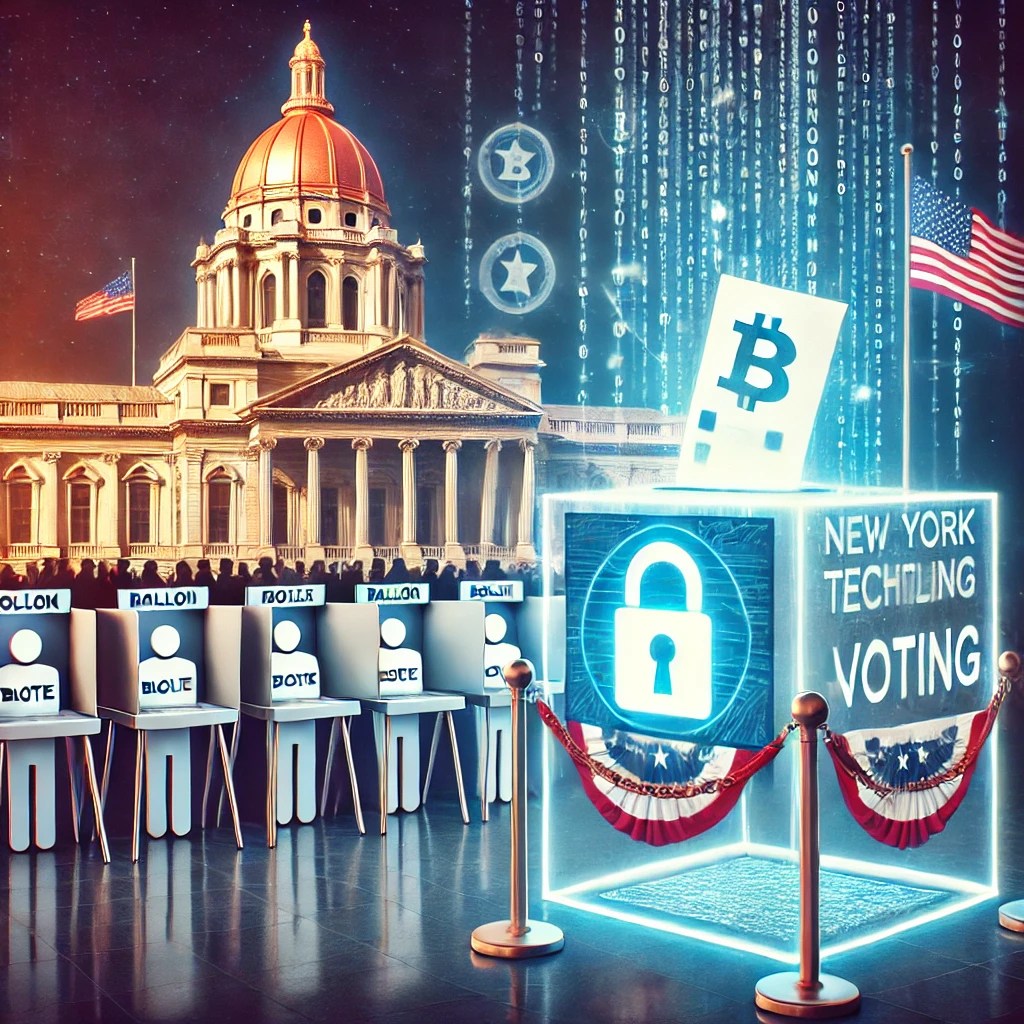Assemblyman Clyde Vanel filed Assembly Bill A7716 on April 8, proposing that the New York State Board of Elections study how blockchain technology could be used to secure voter records and election results. The legislation defines blockchain as an auditable ledger capable of delivering an “uncensored truth.”
Assembly Bill A7716, proposed by Assemblyman Clyde Vanel (D-33) on Tuesday, aims to explore blockchain’s potential in securing voter records and election results in the state of New York. The bill requires a comprehensive report involving collaboration with experts in blockchain, cybersecurity, and election systems within a year.
The U.S. Department of Government Efficiency (D.O.G.E) also explored the possibility of introducing a federal blockchain-based election voting “eVote” and identification verification system in November 2024, with sources saying it could be built in partnership with X, Cardano, Hyperledger, and Hedera.
Vanel previously filed four proposed laws back in 2017 that aimed to promote research on the solid possible applications of blockchain technology by the NY state government.
Vanel proposes the use of blockchain secured voter data and election results
NEW: New York Bill proposes to use "blockchain technology" to protect election results
Democrat Assemblyman Clyde Vanel (@clydevanel) introduced Assembly Bill 7716 today pic.twitter.com/lPBTgLW9dX
— Bitcoin Laws (@Bitcoin_Laws) April 8, 2025
Vanel filed a bill proposing that the State Board of Elections, in consultation with and using data collected by the Office of Information Technology Services (ITS), will study and evaluate the use of blockchain technology to protect voter records and election results. The State Board of Elections will evaluate all relevant data with the assistance of experts in blockchain technology, voter fraud, cyber security, voter records, and election results.
For purposes of this act, ‘blockchain technology’ was defined as a distributed ledger technology that uses a distributed, decentralized, shared, and replicated ledger, which may be public or private, permissioned or permissionless, or driven by tokenized crypto economics or tokenless.
According to Vanel’s proposed bill, data on the ledger will be protected with cryptography, shall be immutable and auditable, and will provide uncensored truth.
“It’s fascinating to see innovative ideas like Assembly Bill 7716 being introduced, especially when it comes to something as foundational as election integrity…The integration of blockchain technology into voter records and election results could represent a significant step forward in transparency and security.”
–Jeffrey Tan, Host at Gold IRA Podcast
Tan stressed that it would be interesting to follow the progress of this bill and see how it shapes the conversation around the role of blockchain technology in governance moving forward.
Podcast host says the proposed bill encourages enhanced democracy
Podcast host Tan said that it was encouraging to see lawmakers exploring “cutting-edge solutions” like blockchain to enhance democracy. He added that it was “exciting to see” blockchain applications expanding into areas like governance and public administration, where trust and accountability are paramount.
According to Tan, the ability of blockchain technology to create a decentralized and tamper-resistant ledger meant that every vote and record had the potential to be safeguarded in a way that minimized human error and interference. Particularly, this approach could help address concerns about trust in the electoral process—an issue that has been increasingly under scrutiny in recent years.
Tan also claimed that blockchain could help reinforce public confidence in the democratic system by ensuring that data is immutable and accessible only to those with proper authority. On a broader scale, the implementation of blockchain in elections could also pave the way for greater adaptability in how U.S. voters approach the voting process, especially in areas where accessibility is a challenge.
The podcast host pointed out that while there are certainly challenges to overcome, such as scalability, cost, and ensuring that the technology itself remains resistant to cyber threats, these are hurdles that can be addressed through strategic planning and collaboration between policymakers, technologists, and cybersecurity experts. He also mentioned that it is worth noting how Vanel’s proposed bill reflects a growing acknowledgment of blockchain’s potential beyond crypto.
Cryptopolitan Academy: Tired of market swings? Learn how DeFi can help you build steady passive income. Register Now
















No comments yet